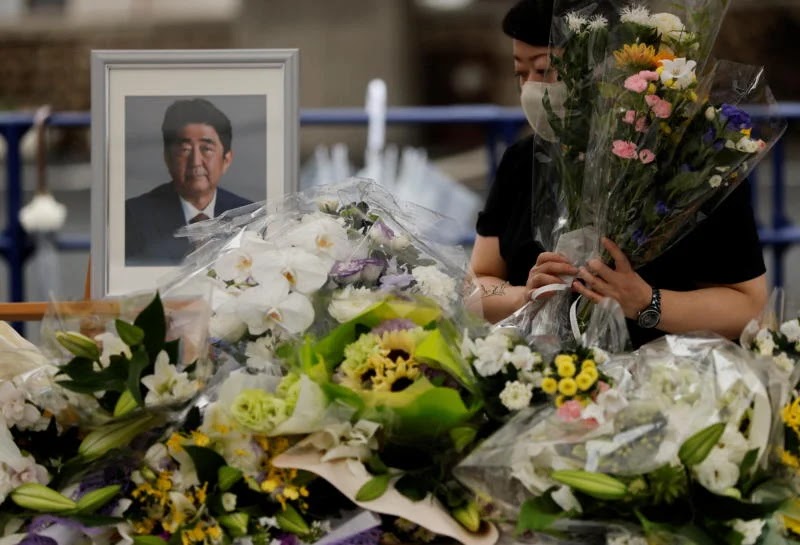The head of the national police in Japan has announced his intention to step down in order to accept responsibility for the murder of former prime minister Shinzo Abe last month, citing the need for a "new start" for the agency.
Itaru Nakamura's announcement on Thursday coincided with the release by his agency of a report that blamed police security shortcomings, ranging from planning to guarding at the scene, for the killing of Abe during a campaign rally on July 8 in Nara, western Japan.
“In the process of verifying our new security plan, we have come to realise that our security duties would need a fresh start,” Nakamura told a news conference.
“To mark our fresh start with a new security plan, it is only natural for us to build a new organisation.”
Nakamura did not say when his resignation would be official. Japanese media reported that his resignation is expected to be approved at Friday’s cabinet meeting.
In Nara, prefectural police chief Tomoaki Onizuka also expressed his intention to step down over Abe’s assassination.
Japanese officials, including Prime Minister Fumio Kishida, have acknowledged flaws in the security around Abe’s appearance at the election campaign event.
In its 54-page investigative report released on Thursday, the National Police Agency concluded that the protection plan for the former leader neglected potential danger coming from behind him and merely focused on risks during his movement from the site of his speech to his vehicle.
Inadequacies in the command system and communication among several key police officials, as well as their attention in areas behind Abe at the campaign site, led to their lack of attention on the suspect’s movement until it was too late.
The alleged gunman, Tetsuya Yamagami, was arrested at the scene and is currently undergoing psychiatric evaluation. Yamagami told police that he targeted Abe because of the former leader’s link to the Unification Church. Abe sent a video message last year to a group affiliated with the church, which experts say may have infuriated the shooting suspect.
The church, which was founded in South Korea in 1954 and came to Japan a decade later, has built close ties with a host of conservative politicians, many of them members of Abe’s Liberal Democratic Party.
Since the 1980s, it has faced accusations of problematic recruiting and religious sales in Japan, and the governing party’s church ties have sent support ratings of Kishida’s cabinet into a nosedive even after a recent shuffle.
But supporters of the church have accused the Japanese press of vilifying it, exposing members to social discrimination, while the police investigation of Abe’s shooting remains active.



